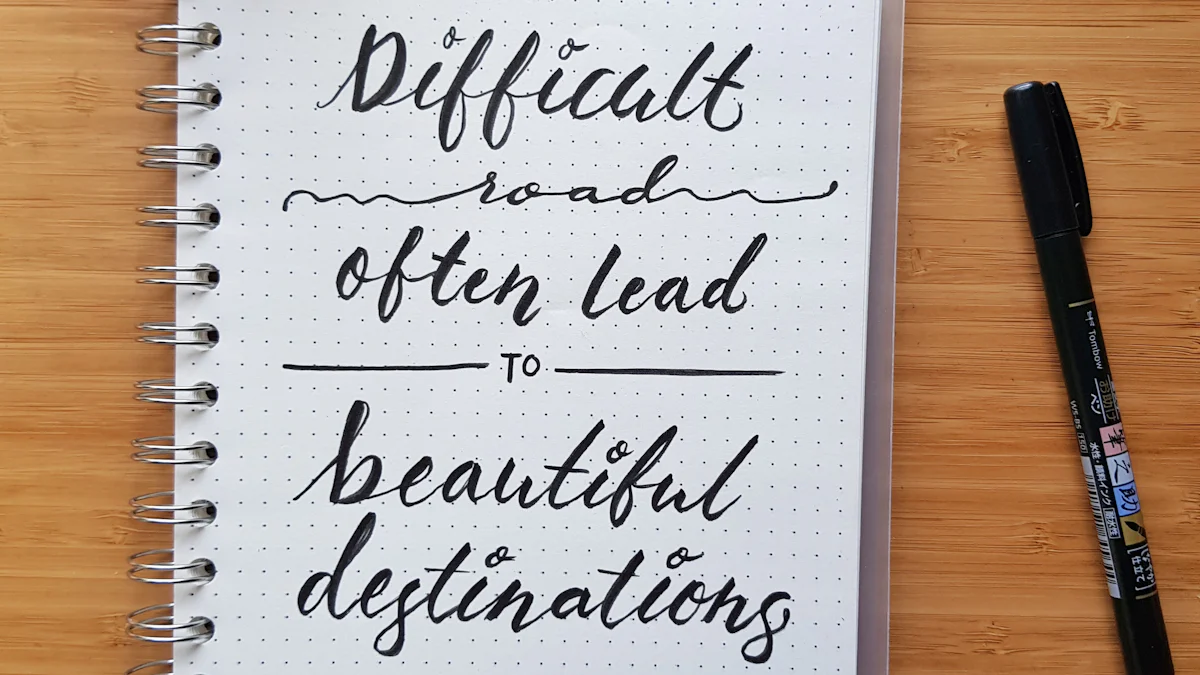5 Examples of Reflective Writing for Beginners

Reflective writing is like talking to yourself on paper. It helps you think about your feelings, thoughts, and experiences. This can help you understand yourself and grow as a person. Did you know it can also help your mental health? Studies say reflective writing helps you handle emotions, make good choices, and learn from life. Here’s a quick summary:
Benefit | Description |
|---|---|
Writing reflectively lets you share feelings and process experiences. | |
More self-awareness | Helps you think about your strengths, weaknesses, and habits. |
Learning and growth | Teaches you lessons from your experiences to keep improving. |
Smarter decision-making | Helps you review past choices and learn from them. |
Managing emotions | Makes it easier to understand and control your feelings. |
For beginners, reflective writing examples can really help. They show you how to start and what to write about. Whether you’re proud of something or learning from a mistake, examples help you connect the past to your future goals. This makes writing easier and more useful.
✨Key Takeaways
Reflective writing helps you understand your thoughts and feelings better.
It can help your mental health by letting you handle emotions.
Writing about wins shows your strengths and how to use them later.
Learning from mistakes through writing makes you stronger for challenges.
Trying new things and reflecting on them can grow your confidence.
Reflective writing helps you learn by linking new ideas to your life.
Ask yourself questions to think deeper and find useful lessons.
Write reflectively often to see your progress and know yourself better.
✨Reflecting on a Personal Achievement

Writing About a Success
Have you ever taken a moment to celebrate something you’ve accomplished? Reflective writing is a great way to do that. It helps you think about what you did well and why it mattered. When you write about a success, you’re not just patting yourself on the back. You’re learning about your strengths and how you can use them again in the future.
Start by asking yourself a few questions. What did you achieve? How did you feel during the process? What challenges did you face, and how did you overcome them? These questions can guide your thoughts and make your writing more meaningful.
For example, let’s say you worked hard to improve your grades in school. Instead of just saying, “I got an A,” think about the steps you took to get there. Did you study more? Did you ask for help when you needed it? Reflecting on these details can show you what works for you and help you repeat your success in other areas of life.
Tip: Be honest with yourself. Reflective writing isn’t about being perfect. It’s about understanding your journey and appreciating your efforts.
Example: Completing a Challenging Project
Imagine you just finished a big project that seemed impossible at first. Maybe it was a science fair project, a group assignment, or even organizing an event. Reflective writing can help you look back and see how much you’ve grown.
Here’s how you might start: “When I first started this project, I felt overwhelmed. I didn’t know where to begin, and I was worried I wouldn’t finish on time. But I decided to break it into smaller tasks. I made a schedule and stuck to it. I also asked my teacher for advice when I got stuck. By the end, I felt proud of what I had accomplished.”
Notice how this example focuses on the process, not just the result. It shows how you handled challenges and what you learned along the way. This kind of reflection can boost your confidence and help you tackle future projects with a positive mindset.
Note: Reflective writing isn’t just about the good parts. If something didn’t go as planned, include that too. It’s all part of the learning experience.
Reflecting on achievements, big or small, helps you see your potential. It reminds you that hard work pays off and that you’re capable of more than you think.
✨Reflecting on a Mistake or Failure
Learning from Challenges
Mistakes happen to everyone. They’re a natural part of life, and while they can feel frustrating, they’re also great teachers. Reflective writing can help you turn those mistakes into valuable lessons. By thinking about what went wrong and why, you can figure out how to do better next time. It’s like having a conversation with yourself about your choices and their outcomes.
Start by asking yourself a few questions. What happened? How did it make you feel? What could you have done differently? These questions can guide your reflection and help you uncover insights. For example, maybe you forgot to study for a test and didn’t do well. Instead of just feeling bad, think about why it happened. Did you manage your time poorly? Did you get distracted? Understanding the root cause can help you avoid making the same mistake again.
Tip: Be kind to yourself. Mistakes don’t define you. They’re just stepping stones on your journey to improvement.
Reflecting on challenges also builds resilience. When you take the time to learn from your failures, you become stronger and more prepared for future obstacles. It’s not about being perfect. It’s about growing and becoming the best version of yourself.
Example: A Missed Opportunity or Poor Decision
Let’s say you had the chance to join a school club, but you decided not to because you were nervous about meeting new people. Later, you realized it could’ve been a great experience. Reflective writing can help you process this situation and learn from it.
Here’s an example of how you might write about it:
“I remember when I chose not to join the drama club. I felt shy and worried I wouldn’t fit in. Looking back, I regret that decision. I missed out on making new friends and trying something fun. If I could go back, I’d remind myself that everyone feels nervous sometimes, and it’s okay to step out of your comfort zone. Next time, I’ll take the chance and see where it leads.”
Notice how this reflection focuses on feelings, actions, and lessons. It’s not about blaming yourself. It’s about understanding your choices and planning for a better outcome in the future.
Note: Writing about mistakes can feel uncomfortable, but it’s worth it. You’ll gain clarity and confidence to face similar situations with a fresh perspective.
Mistakes and failures are part of life, but they don’t have to hold you back. Reflective writing gives you the tools to turn setbacks into opportunities for growth. The more you practice, the easier it becomes to see the silver lining in every challenge.
✨Reflecting on a New Experience

Exploring Unfamiliar Situations
Trying new things can be fun but also a bit scary. It could be learning a hobby or exploring a new culture. These moments push you to step out of your comfort zone. Reflective writing helps you think about these experiences and what they mean. It’s like asking yourself, “What did I learn from this?”
Start by thinking about how the experience made you feel. Were you excited, nervous, or maybe confused? Then, think about what you discovered. Did you learn something about yourself or the world? Writing these thoughts down helps you see why trying new things is important.
For example, imagine you went to a cultural festival for the first time. You could write about the bright colors, the music, and the food you tasted. Maybe you noticed how people from different cultures came together to celebrate. Reflecting on this can help you appreciate diversity and connect with others better.
Here are some ways to reflect on new experiences:
Write about your experience to organize your thoughts and ideas.
Talk to friends or family to hear their perspectives.
These methods make your reflections more personal and memorable. They also help you remember the experience clearly.
Example: Attending a Cultural Event or Trying a New Hobby
Imagine you tried painting for the first time. At first, you might have felt unsure about how to begin. But as you started painting, you felt both focused and excited. Reflective writing can help you capture that moment and what it taught you.
Here’s an example:
“When I started painting, I felt nervous. I didn’t think I’d be good at it. But as I kept going, I realized it wasn’t about being perfect. It was about enjoying the process. I learned that trying something new can be fun, even if it’s hard. Now, I feel more confident about trying other hobbies.”
This kind of reflection shows how new experiences help you grow. It’s not just about what you did but how it changed you. Whether it’s attending an event or learning a skill, reflective writing helps you remember the journey and lessons.
Tip: Don’t worry about writing perfectly. Just be honest about your feelings. That’s what makes reflective writing meaningful.
✨Reflecting on a Relationship or Interaction
Understanding How We Connect with Others
Have you ever thought about how your relationships affect you? Writing reflectively can help you think about your interactions with others. It lets you see what went well, what didn’t, and how these moments shaped you. Whether it’s a chat with a friend, an argument with family, or a kind act from a stranger, reflecting on these events can teach you about yourself and others.
Start by asking simple questions. How did the interaction make you feel? Did it change how you think or teach you something new? What could you do differently next time? Writing about these moments helps you notice patterns in your relationships and understand how you connect with people.
For example, think of a time when you had a deep talk with someone close. Maybe they gave advice that stayed with you or shared a story that inspired you. Reflecting on these moments helps you value the people in your life and the lessons they bring.
Tip: Focus on how the interaction made you feel and what you learned. This makes your reflection more personal and meaningful.
Example: A Talk with a Mentor or Friend
Imagine you’re having lunch with your friend Jill. During the meal, Jill shares how mentoring changed her life. She explains how it helped her grow and make a difference for someone else. As you listen, you start thinking about how you could help others too. Reflective writing helps you capture this moment and explore its meaning.
Here’s an example:
“While eating with Jill, I felt inspired by her story about mentoring. She said it gave her purpose and let her make a positive impact. Her words made me think about helping others too. I’ve always wanted to give back, but I wasn’t sure how. After our talk, I decided to look into mentoring programs. Jill’s story showed me that small actions can lead to big changes.”
This reflection shows how a simple talk can spark new ideas. It’s not just about what Jill said but how it made you feel and motivated you to act. Reflecting on these moments helps you see the power of meaningful conversations and how they shape your choices.
Note: Don’t be afraid to write about feelings, even if they’re hard. These reflections often help you grow the most.
Reflecting on relationships and interactions helps you learn about yourself and others. It’s a way to grow from the people around you and build stronger connections. The more you practice, the more you’ll see how these moments shape your life.
✨Reflecting on a Learning Experience
Gaining Insights from Education
Learning isn’t just about memorizing facts or passing tests. It’s about discovering new ideas, gaining skills, and understanding the world in a deeper way. Reflective writing can help you make sense of what you’ve learned and how it applies to your life. Whether it’s a class, a workshop, or even a book, taking time to reflect can turn knowledge into wisdom.
Start by asking yourself a few questions. What did you learn? Did anything surprise you? How can you use this knowledge in the future? Writing down your thoughts helps you connect the dots and see the bigger picture. For example, if you learned about teamwork in a group project, think about how you can use those skills in other areas of your life.
Reflective writing also helps you remember what you’ve learned. When you write about an experience, you’re more likely to recall it later. It’s like creating a personal library of lessons you can revisit anytime. Plus, it’s a great way to track your growth over time. You might look back and realize how much you’ve improved or how your perspective has changed.
Tip: Don’t just focus on what went well. Write about the challenges too. Sometimes, the toughest lessons teach you the most.
Example: A Workshop, Class, or Book
Imagine you attended a workshop on public speaking. At first, you might have felt nervous about speaking in front of others. But as the workshop went on, you learned techniques to manage your fear and communicate clearly. Reflective writing can help you capture this experience and what it taught you.
Here’s an example:
“When I joined the public speaking workshop, I felt anxious. I didn’t think I could speak confidently in front of a crowd. But the instructor showed us how to organize our thoughts and use body language effectively. By the end of the workshop, I gave a short speech and felt proud of myself. I learned that preparation and practice make a big difference. Now, I feel more confident about speaking up in class.”
This kind of reflection helps you see how far you’ve come. It’s not just about the skills you gained but also about how the experience changed you. Whether it’s a class, a book, or a workshop, reflecting on what you’ve learned helps you grow and apply those lessons in real life.
Note: Keep your reflections honest and personal. The more you open up, the more meaningful your writing will be.
Reflecting on learning experiences helps you turn knowledge into action. It’s a way to celebrate your progress and prepare for future challenges. The more you practice, the easier it becomes to see the value in every lesson.
Reflective writing helps you grow and understand yourself better. It lets you think about feelings, learn from events, and plan goals. For instance, someone wrote about reading The Hate U Give. This helped them understand empathy and issues like racism more deeply. Writing about moments like these can change how you see things and make choices. Doing it often helps you notice habits and find ways to get better. Begin with small steps, be truthful, and enjoy learning about yourself. You’ll be surprised by how much you can improve.
FAQ
What is reflective writing?
Reflective writing is when you think about your experiences and write down your thoughts and feelings. It helps you understand yourself better and learn from what happens in your life. Think of it as a conversation with yourself on paper.
How do I start reflective writing?
Start by picking an experience to reflect on. Ask yourself questions like, “What happened? How did I feel? What did I learn?” Write honestly and don’t worry about being perfect. Just focus on your thoughts and feelings.
Do I need to write every day?
Not at all! You can write whenever you feel like it. Some people write daily, while others do it weekly or after important events. Find a schedule that works for you and stick to it.
What if I don’t know what to write about?
No problem! Start with simple prompts like:
What made me happy today?
What’s one thing I learned this week?
How did I handle a challenge recently?
These questions can help you get started.
Can reflective writing help with stress?
Yes, it can! Writing about your feelings helps you process emotions and clear your mind. It’s like talking to a friend who listens without judging. Many people find it calming and helpful for managing stress.
Should I share my reflective writing with others?
That’s up to you! Reflective writing is personal, so you don’t have to share it. But if you feel comfortable, sharing can help you connect with others and get new perspectives on your experiences.
What tools can I use for reflective writing?
You can use a notebook, a journal app, or even your phone’s notes app. Some people prefer typing, while others like handwriting. Choose whatever feels easiest and most comfortable for you.
How can I improve my reflective writing?
Practice regularly and be honest with yourself. Don’t focus on grammar or spelling—just let your thoughts flow. Over time, you’ll notice patterns in your writing and gain deeper insights into your experiences.
Tip: Use prompts or examples from this blog to guide your writing. They’re great for sparking ideas! 😊
See Also
5 Quick Strategies for Writing Blog Posts Efficiently
5 Key Guidelines for Creating an Outstanding Blog Entry
Embrace Spring: Writing a Seasonal Blog Post Example

